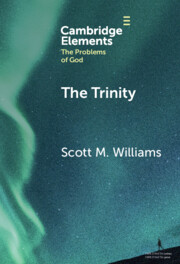Element contents
The Trinity
Published online by Cambridge University Press: 09 December 2024
Summary
Keywords
- Type
- Element
- Information
- Series: Elements in the Problems of GodOnline ISBN: 9781009293105Publisher: Cambridge University PressPrint publication: 16 January 2025
References
- 2
- Cited by

